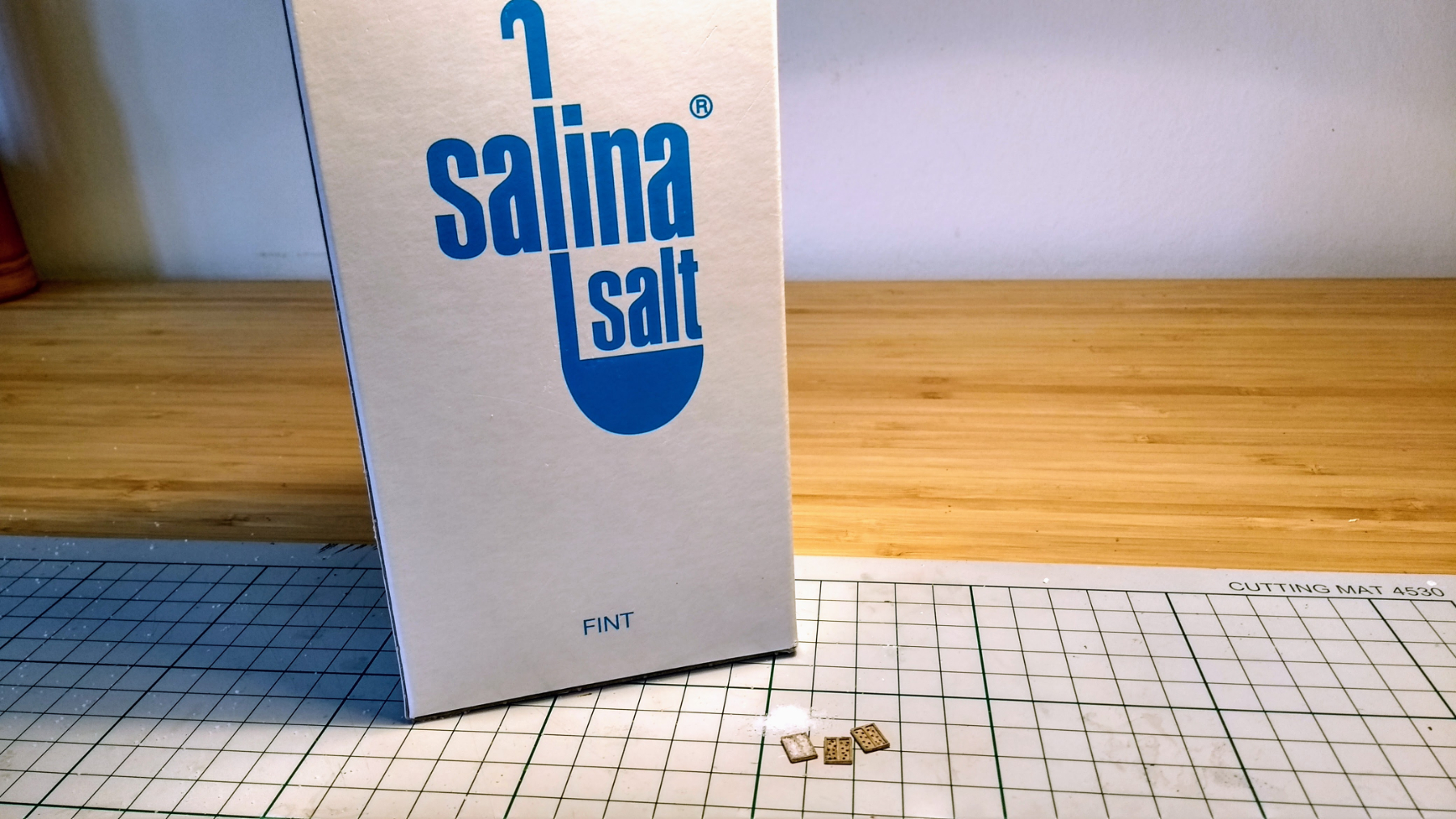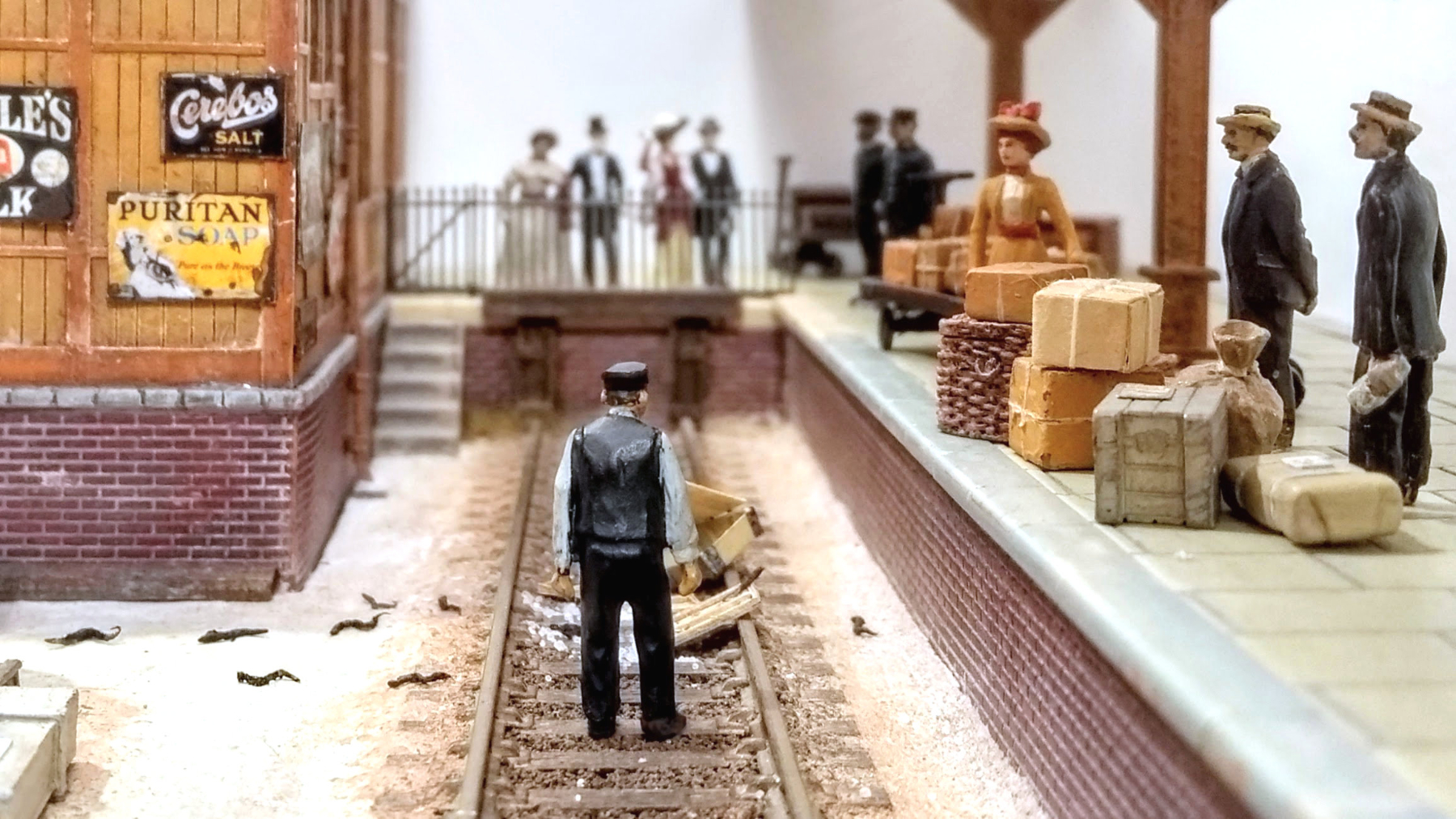Over the years I’ve gathered a small collection of anecdotes and photos that document quirky situations and customs on the real-life railway. The idea is to re-enact them in model form while the glue dries on other projects. The Slipper Boy story was one attempt at this, although admittedly that one got a bit out of hand!
Here’s another, simpler one. First, the props:*****
Clear as mud, I suspect! 😏 Here’s what it’s all about:
Railway Magazine, January 1906:
Just another incident on the everyday railway, but we can’t allow this stuff to be forgotten! Below is an attempt to re-enact it in my Farthing setting. I’ll see if it works without words:
*****
That was the event as reported. But I wonder what happened afterwards? All those tasty eels, and no ice left to keep them fresh. A quick discussion among the staff, perhaps, to find an - ahem - appropriate solution?
😊
*****
PS: I couldn’t find a period description of exactly how live eel were transported in Edwardian days, so the container seen here is loosely based on a 1970 FAO publication which documents a method that does not seem out of place in earlier days:
"Live eels can be transported in small quantities in tray-boxes […]. A typical wooden tray-box contains four lift-out trays about 50mm deep, each designed to hold about 10kg of eels graded according to size. The top tray is usually filled with crushed ice so that cold melt water trickles down through the eels during the journey to keep them cool and lively. […] Each tray has drain holes and is divided across the middle to make a total of eight compartments holding about 5kg each, that is about 40kg for the whole box. The lid of the box is nailed on, and the whole is steel-banded both to prevent pilferage and to prevent the eels escaping through the joints. Boxes of this type are used successfully for live transport not only within the UK but also for 24-hour journeys from the Continent with little or no loss."
Source: FAO.






























